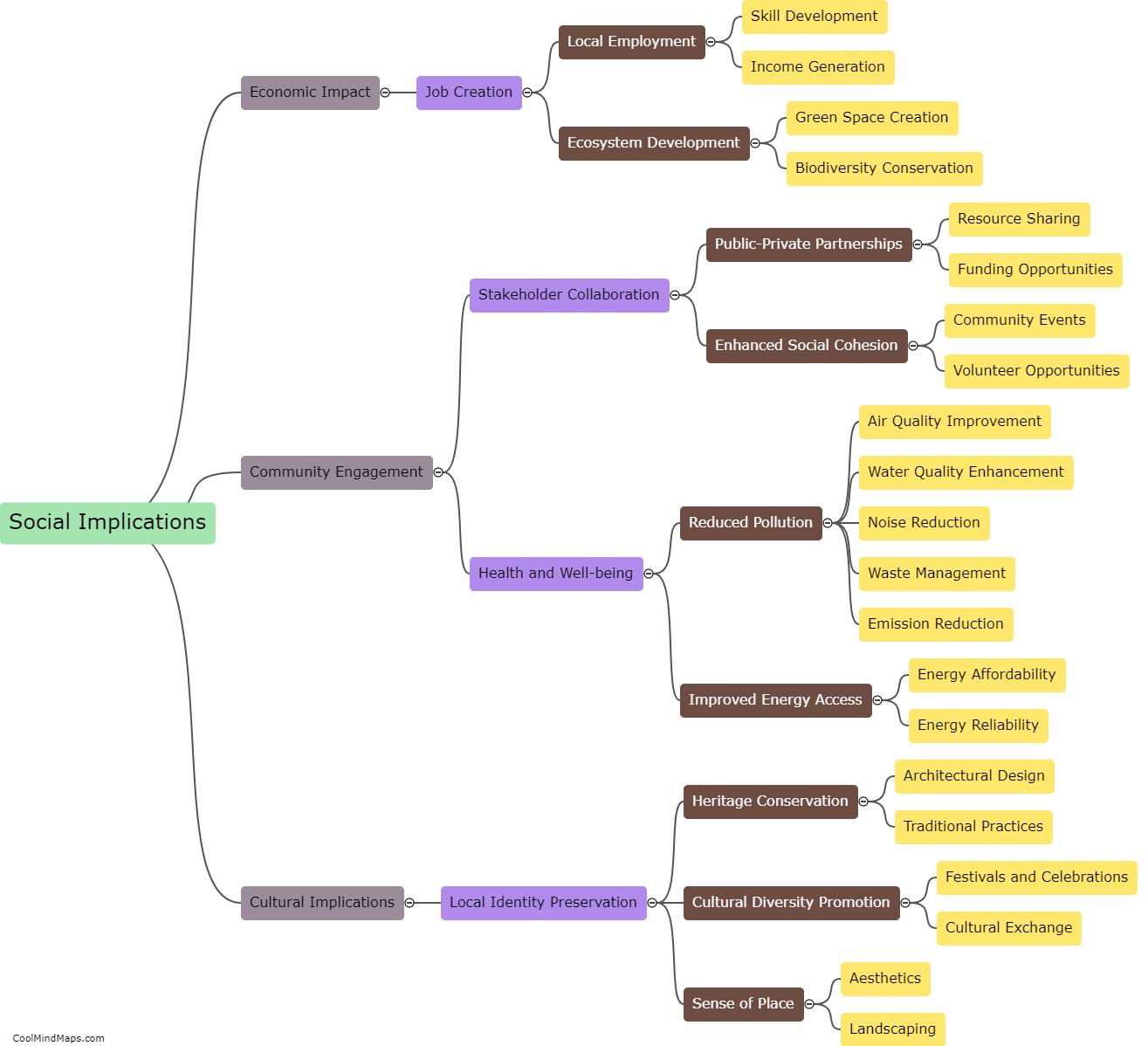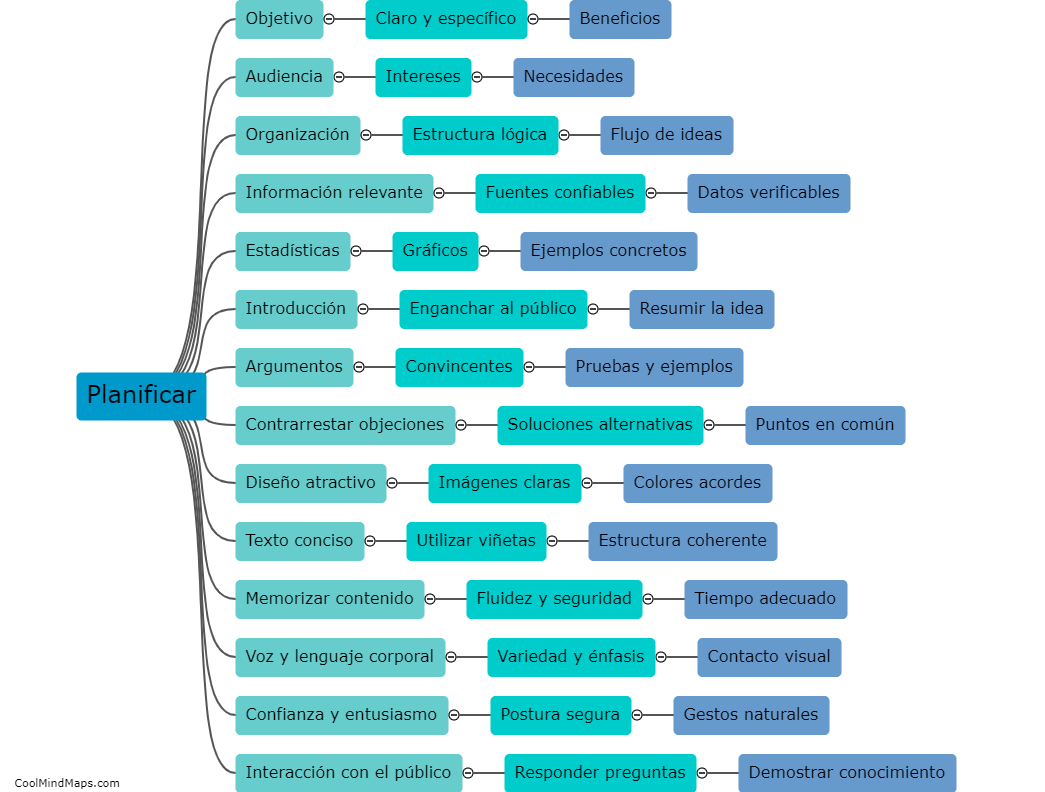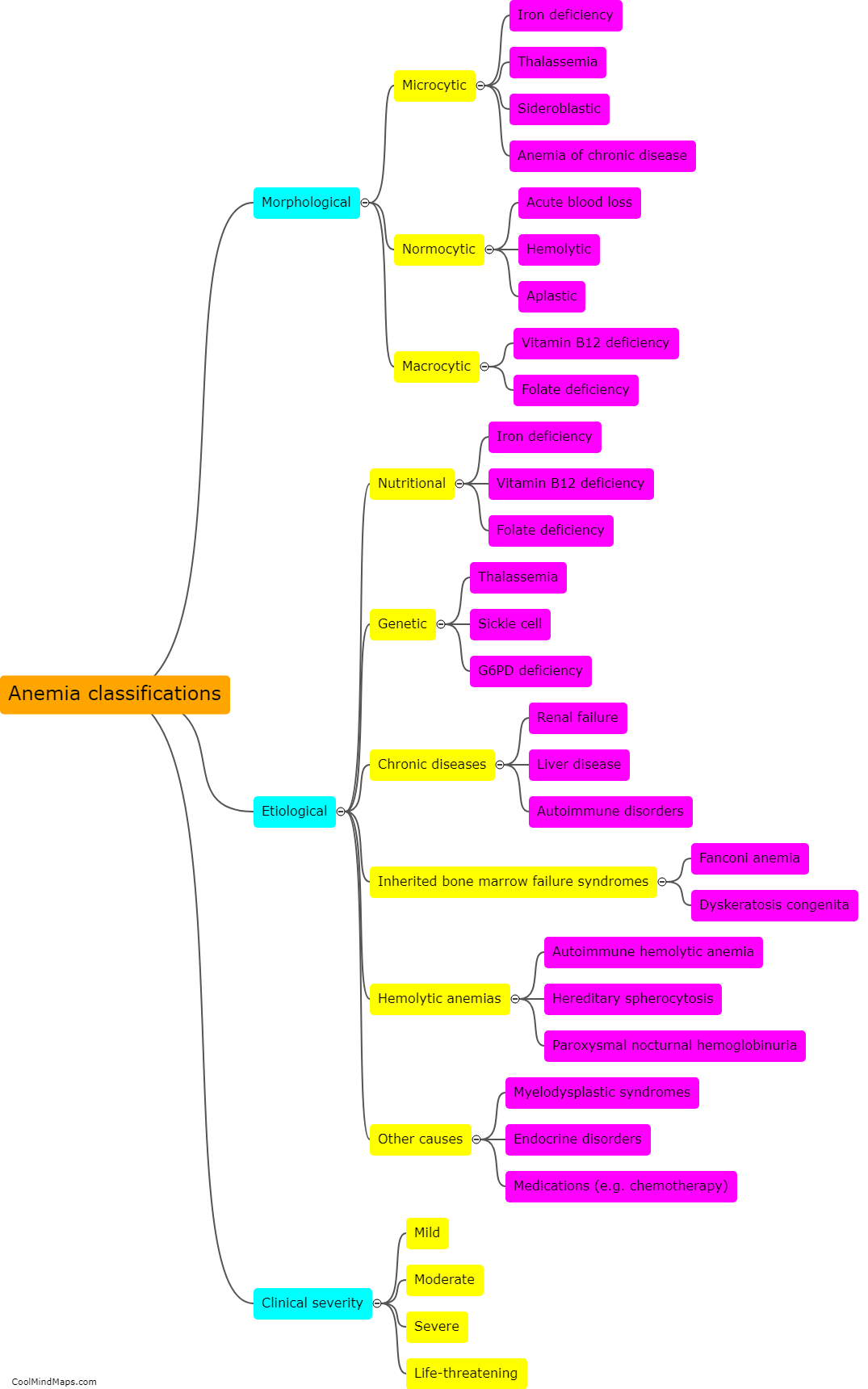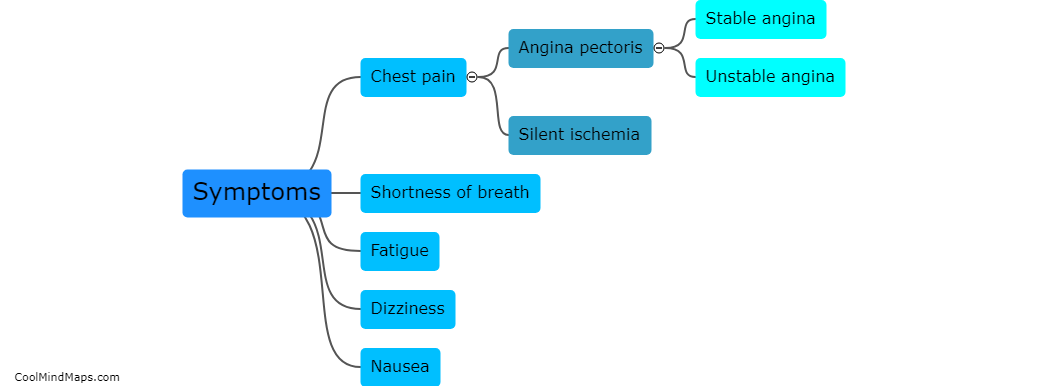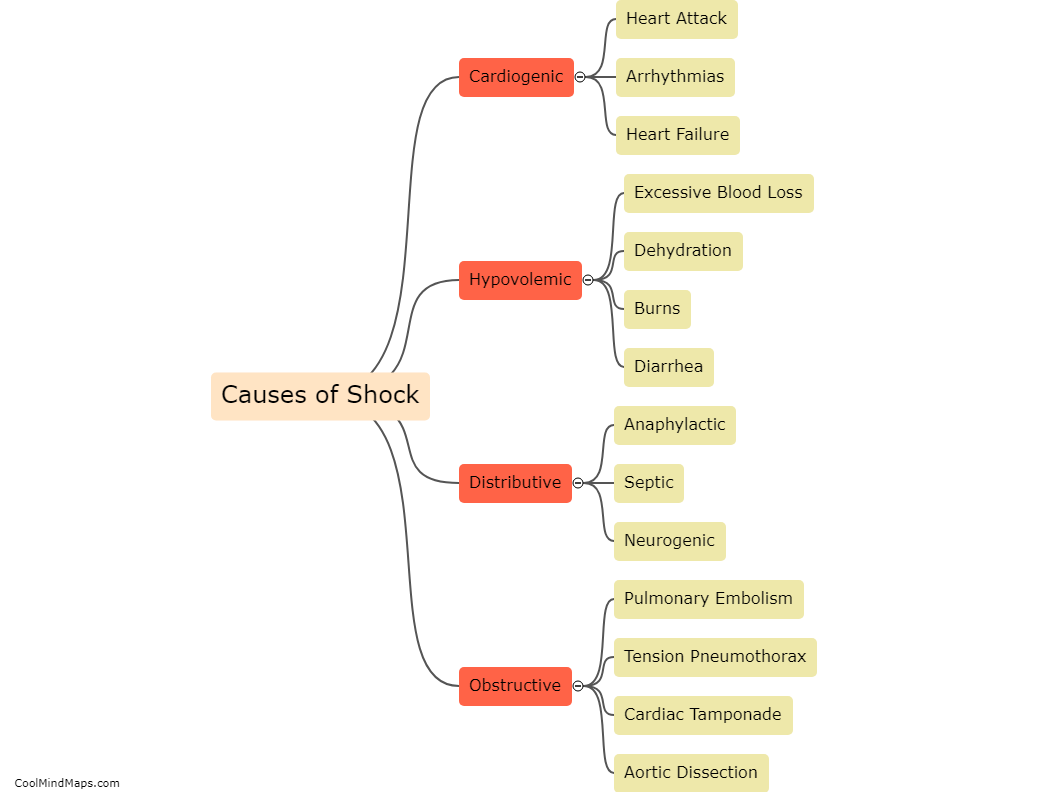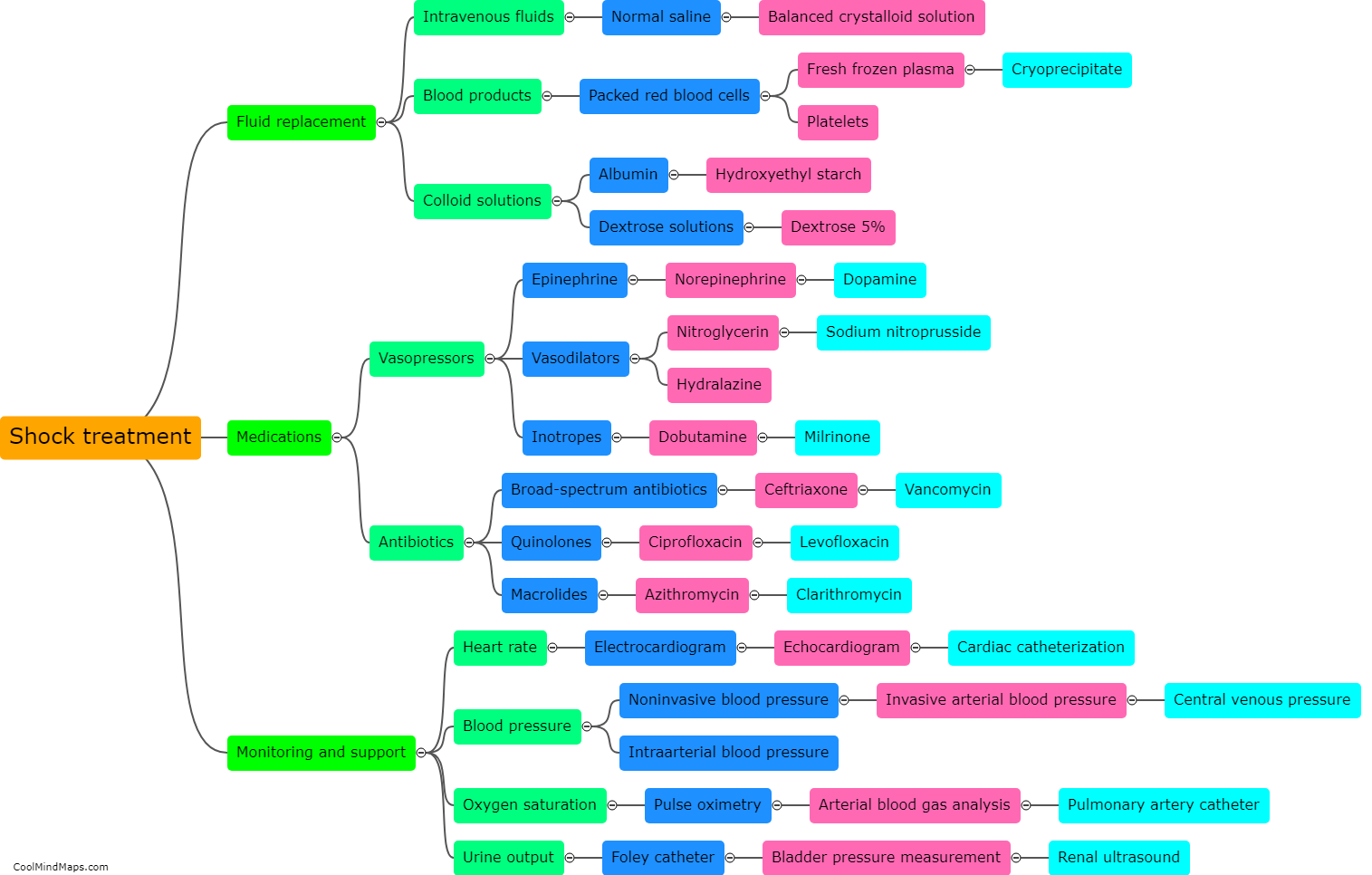What is ischemic heart disease?
Ischemic heart disease, also known as coronary artery disease, is a condition that occurs when the arteries that supply blood and oxygen to the heart become narrowed or blocked. This is typically caused by the buildup of plaque, comprised of cholesterol and other substances, on the inner walls of these arteries. As the plaque gradually restricts blood flow to the heart, it can lead to various symptoms such as angina (chest pain), shortness of breath, and fatigue. If the blood flow is completely blocked, it can result in a heart attack. Ischemic heart disease is a common form of heart disease and is a leading cause of death worldwide. Management and treatment options for ischemic heart disease generally involve lifestyle changes, medications, procedures like angioplasty or bypass surgery, and cardiac rehabilitation.
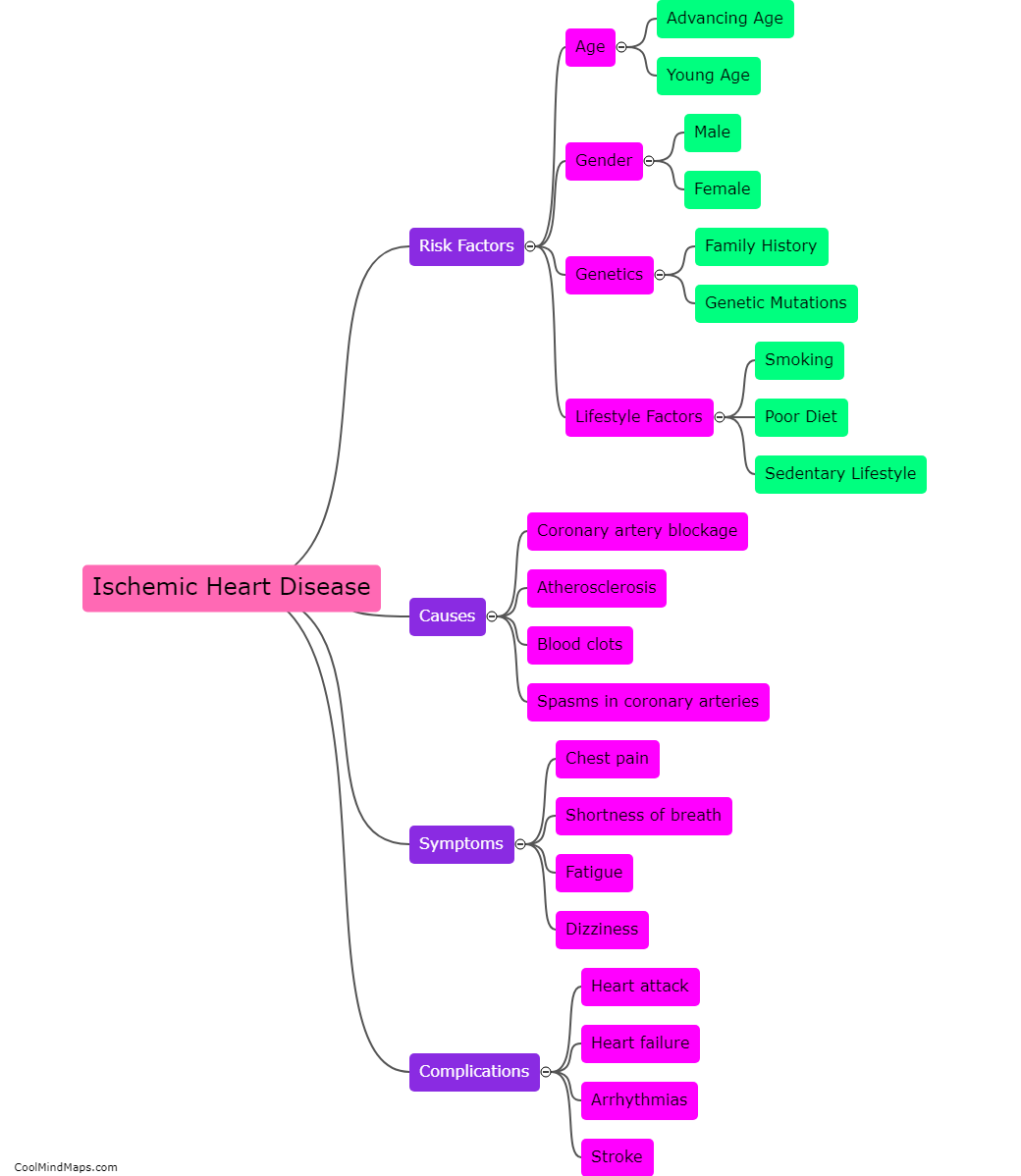
This mind map was published on 19 July 2023 and has been viewed 96 times.


